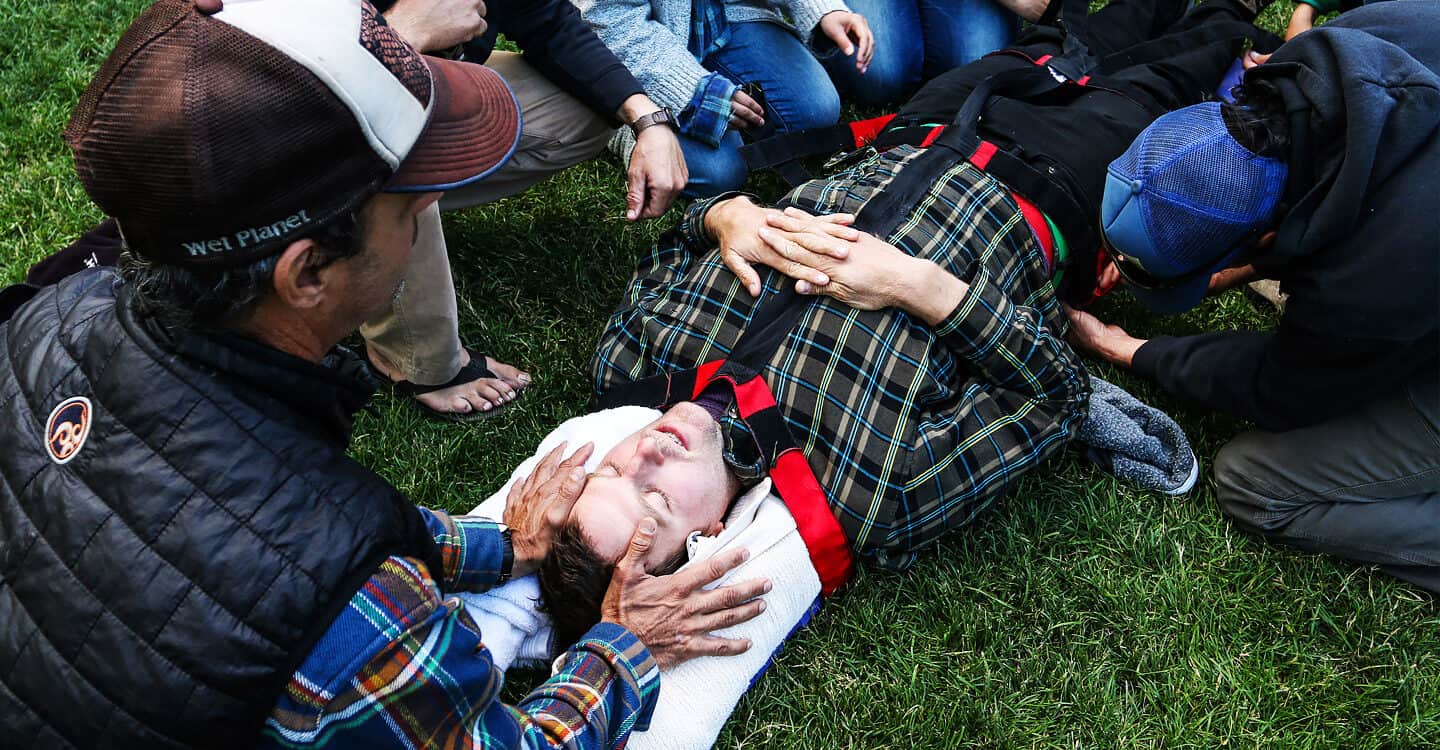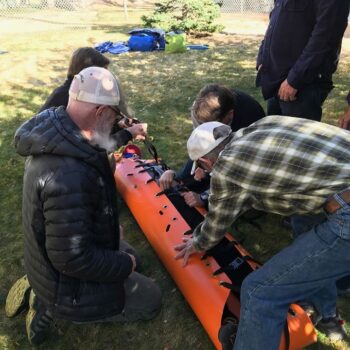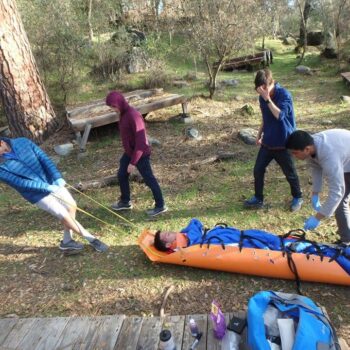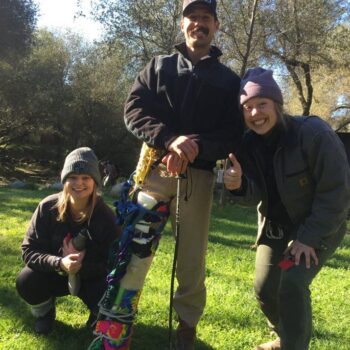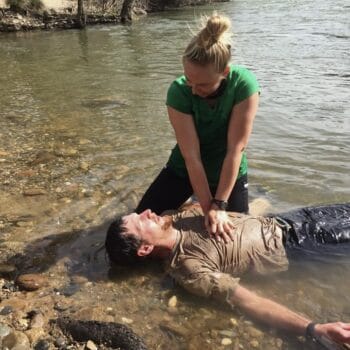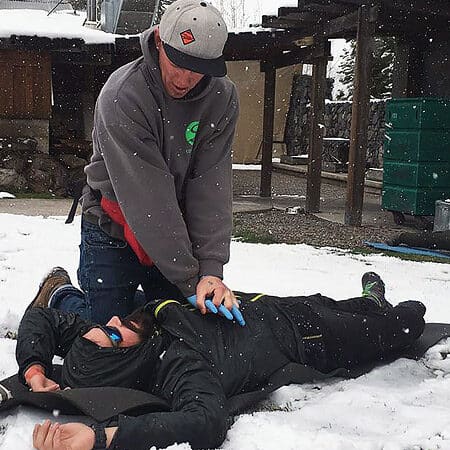
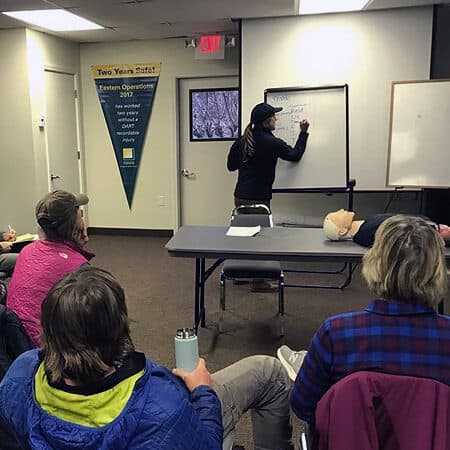
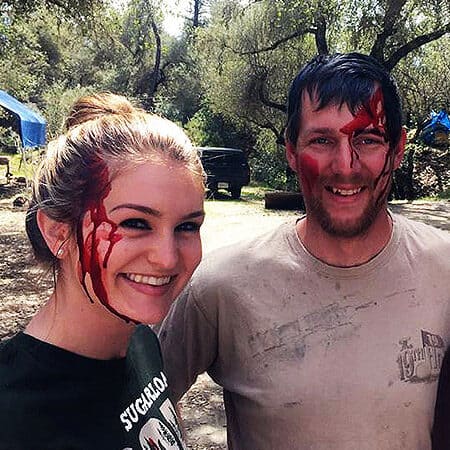
Price: Full Course: $750 / Recert: $345
Wilderness First Responder Course Near Portland, OR
Intensive 8-Day Wilderness First Responder Certification CourseOverview
-
Includes: Instruction, patient SOAP notes, case studies, textbook/field manual, all lab materials, and all medical supplies
-
Certification: WFR certification through Sierra Rescue International
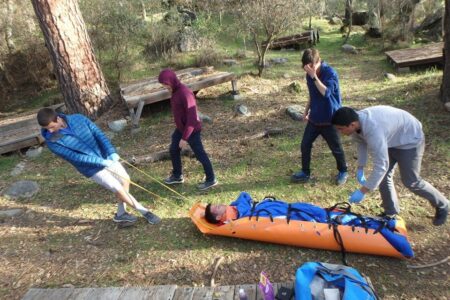
Certification provided by Sierra Rescue International
Located one hour and 15 minutes from Portland, Oregon, this course’s location is perfect for anyone looking for a WFR course in Washington or Oregon. The Wilderness First Responder course is designed for outdoor professionals and outdoor enthusiasts. It has become the industry standard for most wilderness guide services and environmental education programs. It focuses on developing skills for treating medical problems and injuries in a wilderness setting outside of the “golden hour” of first response, under extreme conditions with limited equipment. These courses include a lot of anatomy and physiology, providing the wilderness rescuer with the knowledge and skills to care for patients over an extended period. It is based on the protocols set by the Wilderness Medical Society, and instruction encourages the student’s ability to think through body systems to determine the best response to traumatic, environmental, or medical situations. Classroom sessions are followed with hands-on practice scenarios designed to integrate the information in a field setting. The realistic practice scenarios include a nighttime scenario. Students will also be able to see their skills in action as video coverage of intensive scenarios will be reviewed towards the end of the course. The course includes AEHS adult, child, and infant CPR certification, which is OSHA approved.
Course Outline
What You’ll Do and Learn on Our WFR Course
The following describes the various classroom and scenario topics covered during the 80-hour (8 days) Wilderness First Responder course. Quizzes and common practical scenarios will lead to a final written exam and test scenario. The curriculum and class time can exceed 10 hours a day with the required homework during this intensive wilderness medical training. It’s time well spent!
Introductions
- Opening and course paperwork
- Course introduction and expectations
- Student and instructor introductions
- Medical legal overview
Basic Life Support Skills – Anatomy and Physiology
- Evolution of the Patient Care System and how WFRs fit in
- Patient Assessment System (PAS) Part 1
- General review of anatomy and physiology (all systems)
- Specific exploration of the respiratory system
- Hands-on practice establishing an airway/airway management
- Specific exploration of the circulatory system
- Hands-on practice for checking for a pulse, controlling bleeding, CPR
- Specific exploration of the nervous system
- Evaluating level of consciousness and maintaining spine stability
- Optional examination of a pig’s heart, lungs, kidneys, and liver
- Basic Life Support lab / AEDs / AEHS CPR testing
Traumatic Injuries
- Understanding the Inflammatory Response
- Review of cellular physiology
- Autonomic Stress Response and Acute Stress Response
- Nervous system injuries – increased ICP, concussion, head wounds, unstable spine
- Respiratory injuries and respiratory distress
- Circulatory injuries and Volume Shock
- Stable and unstable musculoskeletal injuries
- Patient Assessment System (PAS) Part 2
- Hands-on field exercises/ two-on-one patient assessments
- Quiz 1 – wounds, infections, and burns
- Pig’s foot lab: wound irrigation, punctured objects, and fish hook removal
- Exploration of the musculoskeletal system: anatomy and physiology
- Stable and unstable musculoskeletal injuries; 1:1 splinting lab
- Dislocations lab
- Spine assessment and lab: A conservative process for checking the spine
- Spine ruling-out quiz
Environmental Injuries
- Hypothermia
- Heat problems (heat stroke, heat exhaustion, electrolyte sickness, sunburn)
- Cold injuries (frostbite, trench foot, chilblains)
- Near-drowning
- Spine management lab: Moving spine-injured patients, back-boarding, and litters
- Quiz 2 – Toxins, bites, and stings (Includes BBC video)
- Anaphylaxis and allergies
- Injections lab
- Altitude
- Lightning
- Two-on-one patient field assessments: 3 rotations
- Quiz 3
Introduction to Medical
- Infectious diseases
- Gastrointestinal system: anatomy and physiology, and problems (diarrhea, constipation, ulcers, hernias, signs and symptoms of serious problems)
- Genitourinary system: anatomy and physiology and problems (UTI, vaginitis, testicular torsion, pregnancy)
- Diabetes
- Ears, eyes, nose, and throat/teeth problems
- Asthma, heart attack, angina; BBC Video
- Stroke and seizures
- Mini-medical scenarios
Improvised Litters and Final Written Exam
- Improvised litters and carries and passes
- Obstacle course with improvised litters
- Triage lecture and drill
- Mass casualty scenario
- Final written test
- Video Simulation #1
- Debrief Video Simulation #1
- Video Simulation #2
- Debrief Video Simulation #2
Video Simulation #3 and Course Closure
- Debrief Night Scenario
- Video Simulation #3
- Review of written exam, medical equipment, first aid kits, and survival kits
- Finish any testing
- Course debrief, clean up, and closing
What to Bring
All scenarios are created within realistic outdoor settings, and students will take turns acting as rescuers and patients. Be prepared to be outdoors for extended periods, and wear clothing appropriate for the weather. In addition, fake blood and make-up are used to create realistic wounds, bruising, and bleeding. Students will need at least one or two extra pairs of clothes that may be cut and stained to use during scenarios.
This is a VERY interactive course. To protect your personal space, please wear your jog bra, bathing suit, or boxers/shorts (these will not be cut) under your simulation clothes for all patient assessment skills labs.
You Will Need:
- Notebook, pen, and pencil
- Watch
- Two full sets of old clothing (two long sleeve shirts, two long pants, two t-shirts) that can be cut up and dirtied with fake blood for scenarios
- Backpack large enough for course materials and other gear as we will be on the move to various sites around the course location
- Water bottle
- Snacks and lunch
- Camp chair or Crazy Creek chair
- On some days (not the first day), you may be asked to bring the gear you would have when you are playing or working outdoors to practice splinting, protecting patients from the environment, etc. Bringing outdoor equipment is optional, as we will have plenty of gear available to practice with. However, knowing how YOUR gear works as a wilderness medicine tool is excellent. Examples: trekking poles, paddles, snow shovels, snowshoes, skis, axes, backpacks, chairs, and sleeping pads.
Certification
When you have successfully completed the Wilderness First Responder Course, you will receive a Wilderness First Responder certification card from Sierra Rescue. This card acknowledges that you have successfully demonstrated the skills presented during your course according to established guidelines. It does not certify that you can perform at that level. It is your responsibility to stay current with both your understanding and practice. Most medical control personnel require certification as a baseline for authorization. Your Sierra Rescue certification will be recognized worldwide!
Successful completion of the course includes:
- 100% participation in the entire course
- Participation in practice scenarios
- Passing the course written exam
- Passing the final practical scenario
Your certification will be valid for three years. You MUST re-certify within these three years at a course specifically designed as a “Wilderness First Responder Recertification” course. When you go to re-certify, you may re-certify with a responsible and recognized provider of Wilderness Medicine Instruction. We recommend that you take a three-day recertification course. If you fail to re-certify within the three years, you will have to retake the FULL 80-hour WFR course. Do not let your WFR expire!
Recertification
This 3-day WFR recert course is designed to recertify a Wilderness First Responder Certification. We accept Wilderness First Responder certifications from WMI, WMA, WMTC, SOLO, and DMM. Any WFR cards issued from another company need to be cleared by Sierra Rescue before registration. Students must possess a current WFR card. No exceptions. Our reviews are 60-70% hands-on training. Lectures will focus on general review and updating students on the most current information. The student must pass the written WFR test and demonstrate good hands-on skills to pass the course.
Sierra Rescue presents skills and techniques according to practice guidelines established by the Wilderness Medical Society as outlined in the Wilderness Medical Society Practice Guidelines. Sierra Rescue is not liable if you do not adhere to those standards in a field situation, nor can we authorize you to use the skills presented. Your authorization will need to come from a licensed medical control. This course includes an OSHA approved CPR certification.
Dates & Pricing
| Course |
Wilderness First Responder – Full Course |
Wilderness First Responder – Recertification Course |
First Aid/CPR Only |
| Dates | 2024: TBD | 2024: TBD | 2024: TBD |
| Pricing | $750 | $345 | $95 |

